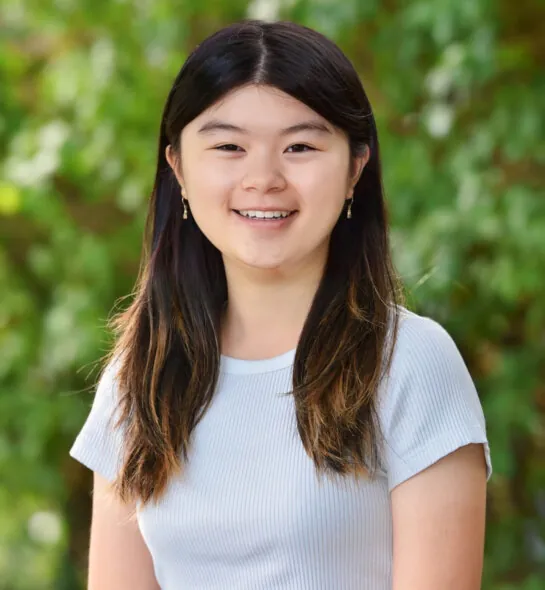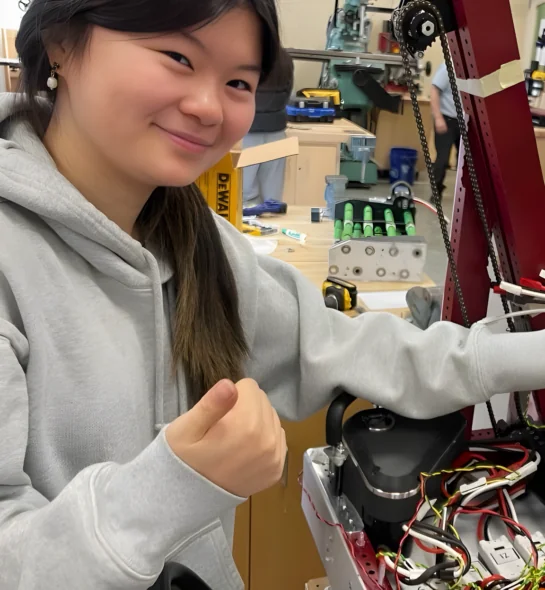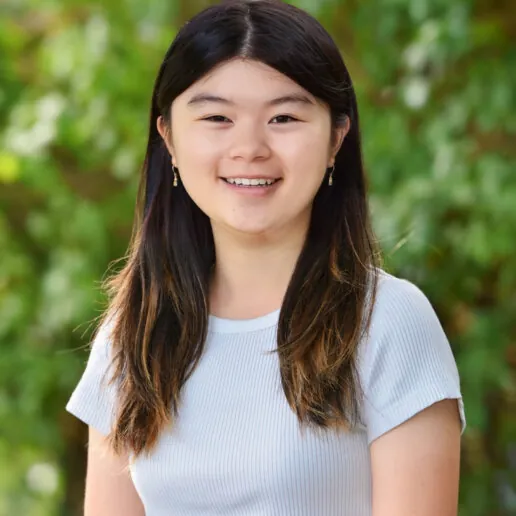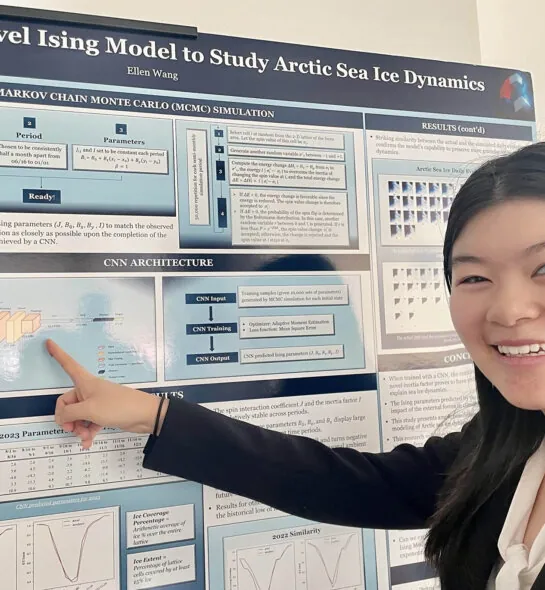Deeper Dive
The centennial Ising model, which was initially proposed to explain ferromagnetism and phase transitions, has become a central pillar of statistical physics and has seen wide success in diverse interdisciplinary applications. In my project, I combined the Ising model with modern deep learning methods to examine Arctic sea ice dynamics, a crucial indicator of climate change. I generalized the classical binary-spin Ising setup with continuous spin values to better capture the real-world ice/water phase transition and introduced an innovative inertia factor to represent the natural resistance to state changes. Using the sea ice concentration data collected by the National Snow and Ice Data Center, my model proves to have strong explanatory power by utilizing the Metropolis-Hastings algorithm for Monte Carlo simulations and training a convolutional neural network to learn Ising parameters. The simulated configurations exhibit striking similarity with the actual ice/water images, and two numerical measures calculated from the simulation results—the ice coverage percentage and the ice extent—match closely with the data statistics. Moreover, the Ising parameters predicted by a convolutional neural network demonstrate the substantial impact of external forces on sea ice dynamics, which can be further enriched and linked to environmental factors in other global warming analyses. My study identifies the fundamental physical mechanisms governing sea ice dynamics and validates the vast potential of pairing classical physics with cutting-edge technologies in climate science studies, thereby presenting ample possibilities for future interdisciplinary research.
Conducting scientific research from start to finish can be daunting for any high schooler, including myself. Along the way, I also learned that persistence is key to overcoming challenges in scientific research. After solving many technical details on both the modeling and computing sides, I was nevertheless disappointed by the poor performance of my model in some time periods when the first batch of results were delivered. It took me weeks of closer investigation into the model configuration and data patterns to realize that the initially constant external field parameter might be instead influenced by ambient temperature and sunlight exposure. Experimenting with a linear function of geographical location could be a plausible try, and it indeed substantially improved the power of my model. Fine-tuning my CNN architecture and different hyperparameters was also quite time-consuming and sometimes frustrating, but witnessing every tiny progression after hours of debugging and testing was incredibly fulfilling and inspired me to carry on.
The fast decline of Arctic ice coverage has broken the energy balance on the earth, leading to further global warming, and has severely threatened the lives of polar bears and many other Arctic animals who rely on sea ice for resting, hunting, and breeding. Even worse, the world just witnessed the hottest July in 2023, which also recorded the hottest year on the earth. As this record may soon get broken in 2024, it is evidently an urgent mission for researchers across many disciplines to collaborate, to better understand the physical dynamics of Arctic sea ice, and to make projections of its future evolution more accurate. This task will help humankind prepare for the enormous environmental and economic consequences of sea ice loss and will facilitate the development of timely and effective solutions. My study is a small step forward for this task but may open the door to future research endeavors.



